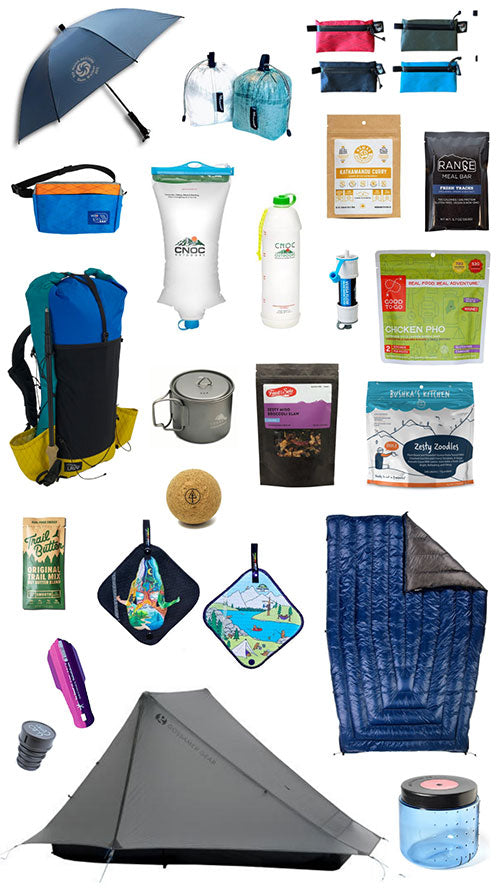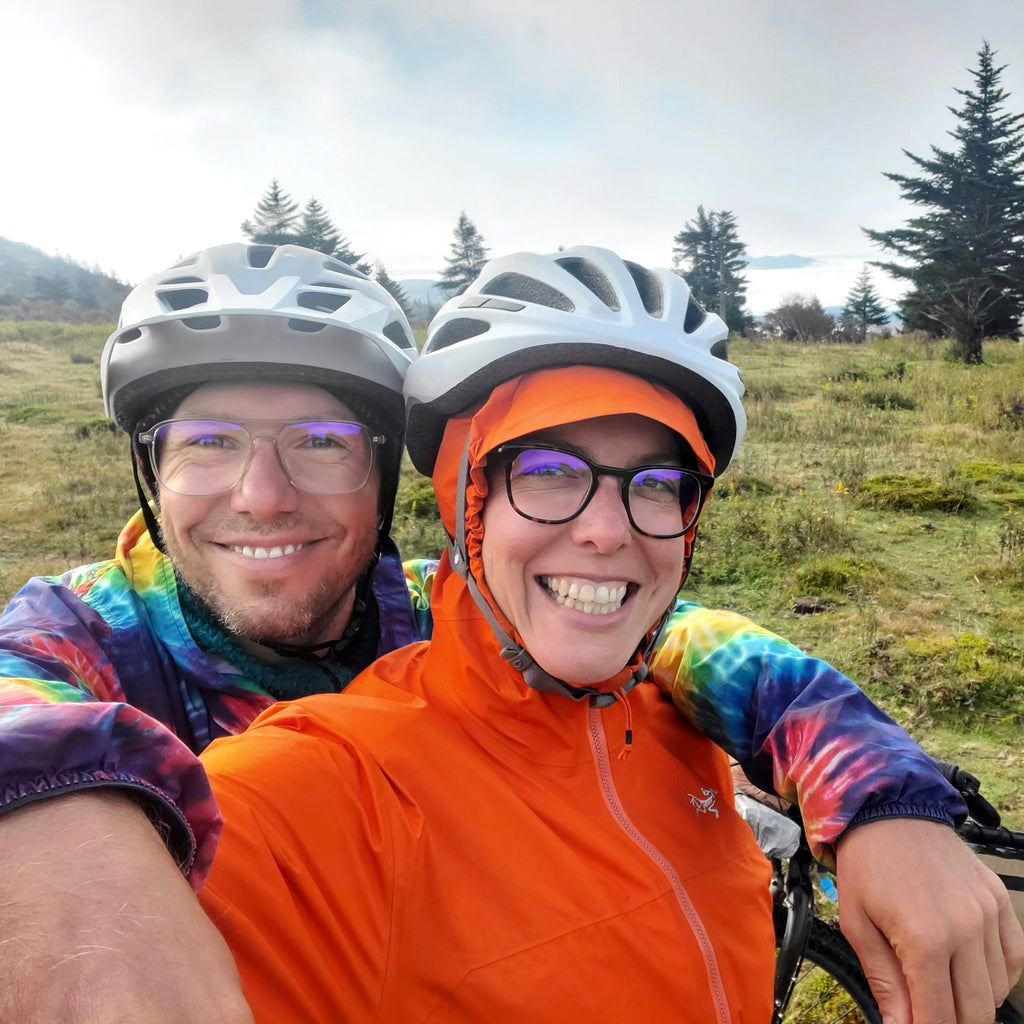
Now, I'm no relationship expert, but every year for the past nine years, my partner Mathieu and I have embarked on a multi-month bike tour together — and every year, we finish with a relationship that is stronger than the one we started with.
We spend every day together, eat meals together, live in a tent together, ride bikes together and sometimes even sync our bowel movements up together. Okay, maybe that was too much information, but you get the picture, we spend a lot of time together.
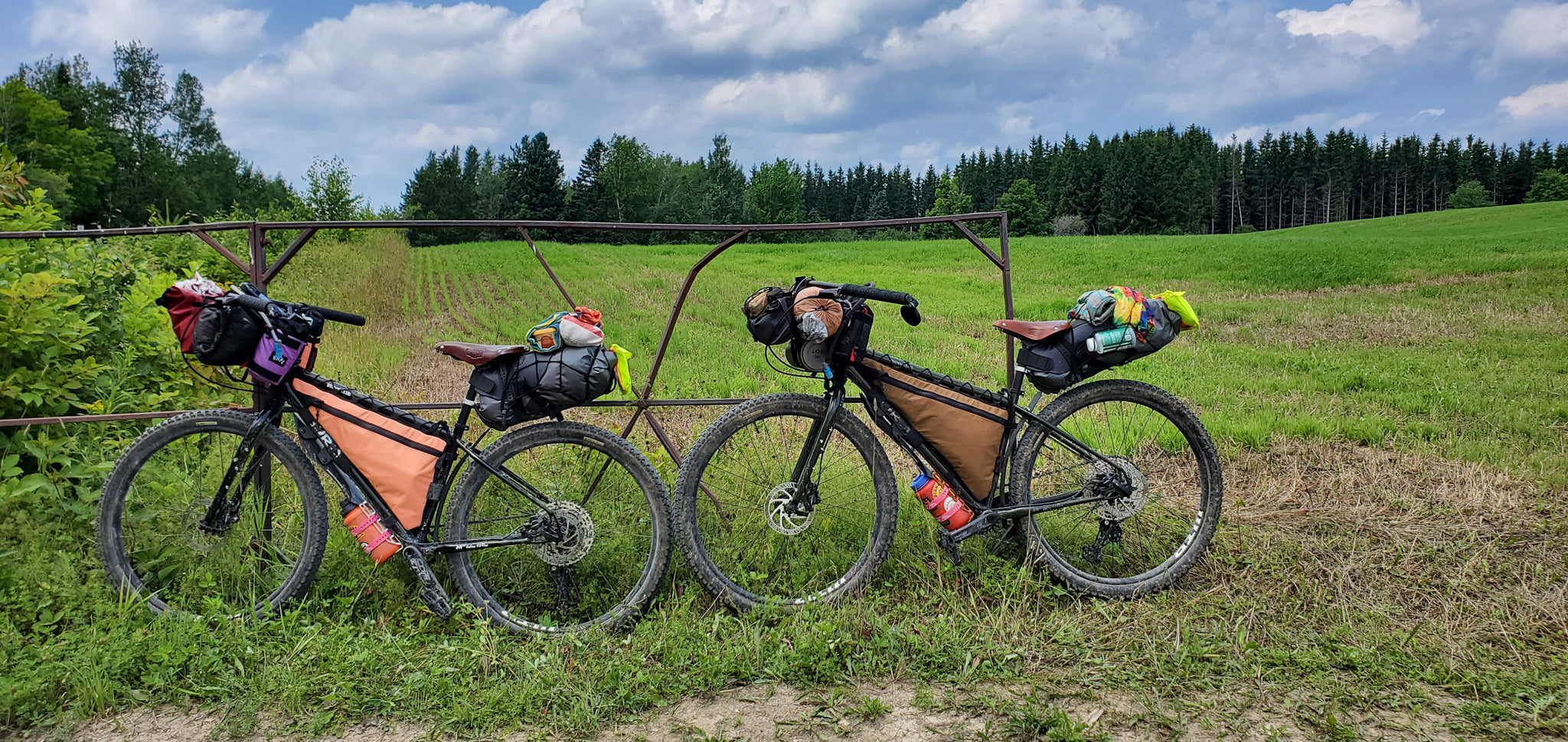
Luckily, we love each other dearly and over the years, we've figured out a few ways to weather the storms, and in some ways, how to avoid creating any in the first place.
I thought I'd share some tips with my fellow adventure couples and those dynamic duos who are curious to take the leap into longer expeditions together.
Communication is Key
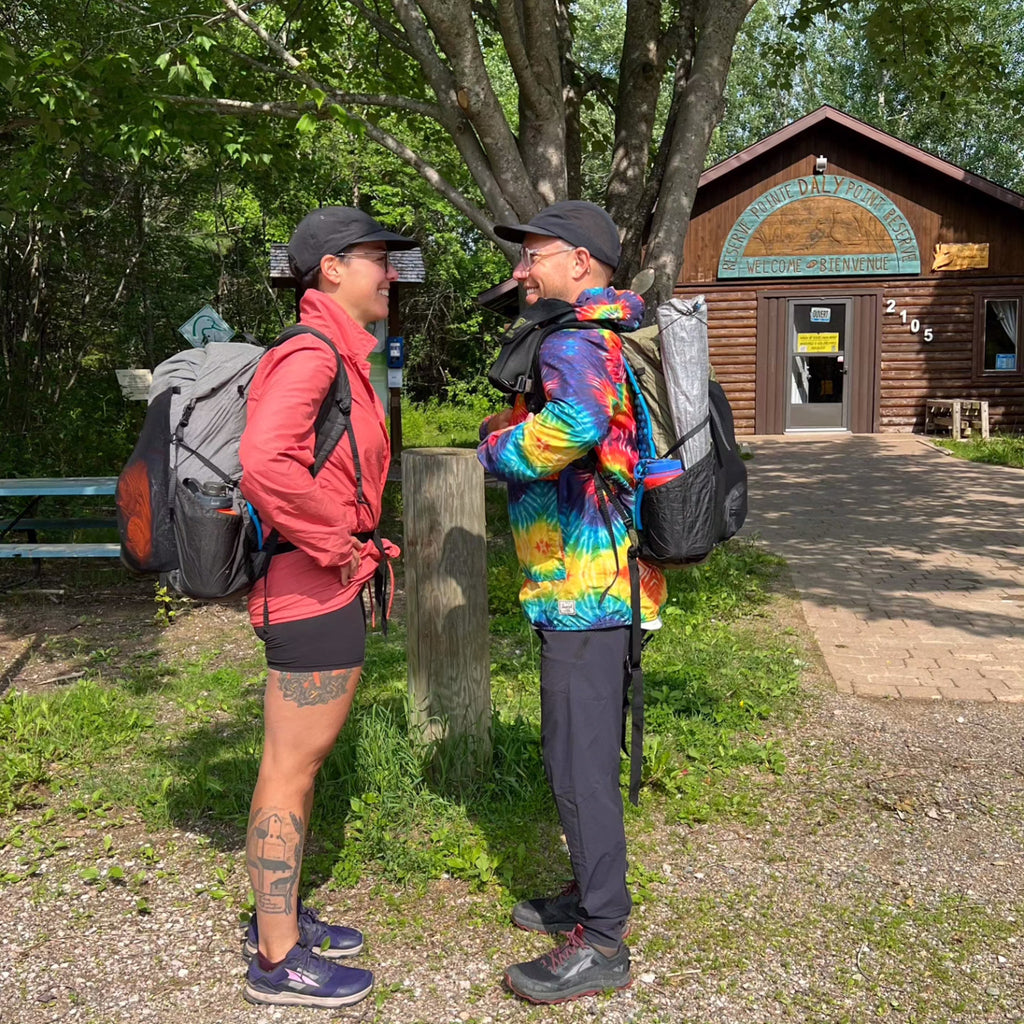
This one takes the top spot, because I truly feel communication is the most important tool for success in everything we do.
Being able to honestly and effectively communicate our wants, needs, feelings, fears, foibles and boundaries to ourselves and our loved ones makes things clear.
When things are clear, there is much less room for assumptions, misconceptions and guessing games, and much more room for feeling seen, heard, understood and respected.
But communication isn't meant to be one-sided, so beyond sharing how you feel, it's also about listening deeply to how your partner feels, too.
And I don't mean listening as in hearing them but then trying to persuade change. I mean, true listening, which has the aim of acceptance and understanding.
These seemingly simple but often overlooked steps make adventure together that much more enjoyable and straightforward because you're both aware of your own and each other's needs.
Once you have that information, take it to heart and work together to figure out the best way for both of you to support yourselves as well as one another.
These important conversations are what I like to call 'Big Talk' and they almost always lead to more love, growth and consensual compromise on both sides.
Honest communication eliminates so many unnecessary dramas, arguments, frustrations and resentments, and allows you instead to put that time and energy into navigating the unfolding challenges of life and adventure that you will no doubt face.
Make Space
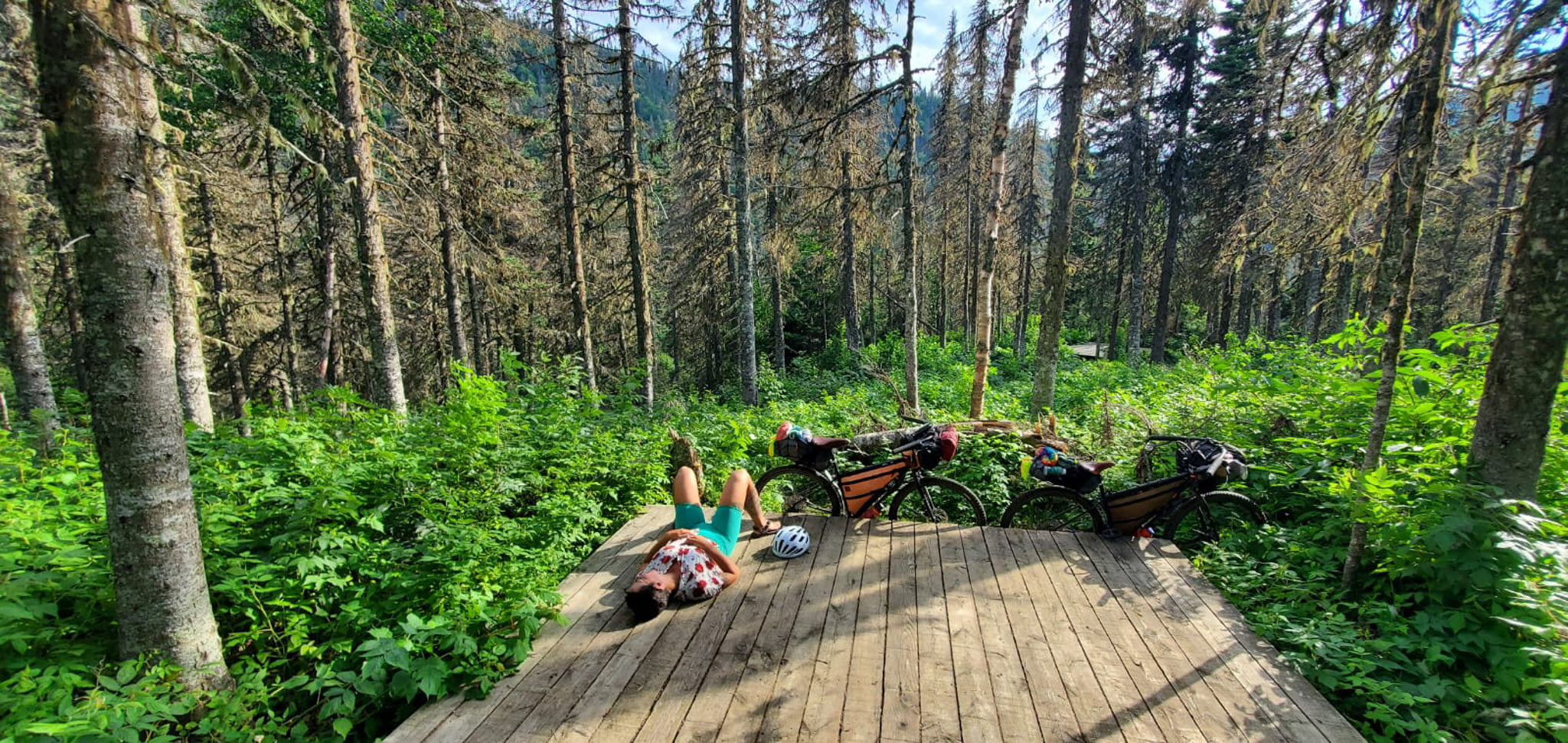
Having some solo time during a long distance adventure can be a really helpful way to check in with yourself, reset and recharge, and stay healthy and happy.
That said, making space when you're out on an adventure with your significant other involves some creativity and of course, solid communication.
One place we make space is first thing in the morning, when we both set aside time for a silent, seated meditation.
Even if it's just five or ten minutes, I find it's a great way to start the day, clear my mind, check in with my body, and explore any thoughts, feelings or desires I have for the adventure ahead.
Then, I can communicate those so we can work together to actualize them, and he can do the same.
Another way I like to make space is to literally walk or ride my bike at a distance from Mat.
Sometimes this happens naturally, but since we often have a similar pace, I'll sometimes say, "Hey, I'm needing a little alone time right now. I'm going to walk ahead for a little while and if you need me, just let me know."
Solid communication, good boundaries, no hard feelings, everyone wins.
Other ways we make space are going for separate walks at the end of some days (maybe around the campground or a few blocks in town) — or making an agreement to eat a meal together, but do so in silence.
Meditate on Mortality
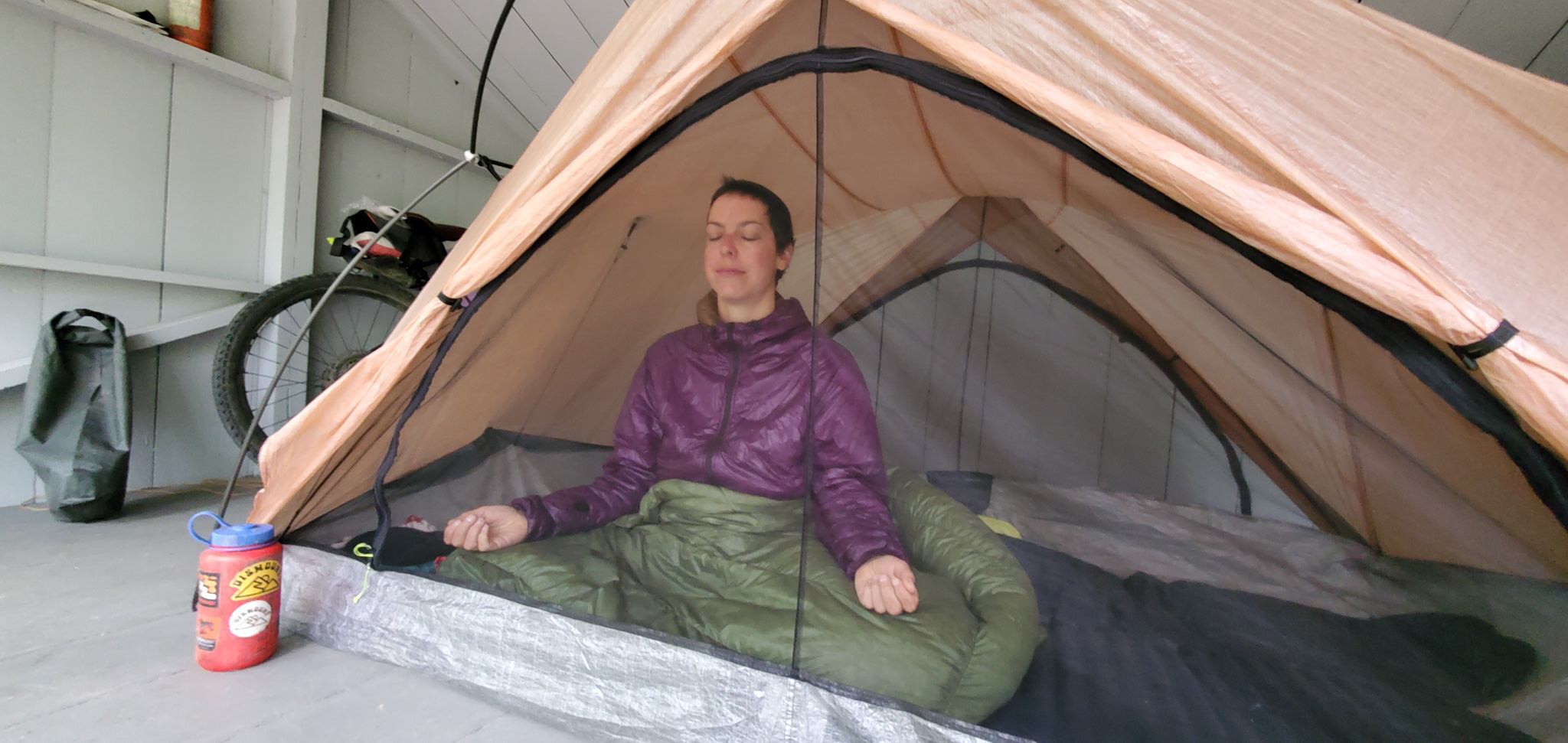
Some people think this is morbid, but the truth is that we are all going to die someday, and when we meditate on our and our loved ones' mortality, it can actually help us be kinder, more loving, forgiving and present in the here and now.
I recently met a man on a cycling trip who told me his high school sweetheart and wife of 40 years recently passed away from ovarian cancer. He told me that he often reflects on their time together and said if he could change one thing it's that he would not have entertained the arguments they sometimes had.
"When I look back now, I realize it was always a waste of time. It was just one of us trying to be right about something that didn't matter," he said, "I wish I would have used that time to love her more, hug her or just sit with her and smile."
I guarantee that when you look at the person you love and imagine that in 100 years you'll likely both be gone, those little things that are getting your goat will seem trivial and you'll just want to love them, hug them and enjoy your grand adventure together.
Better Expedition Behavior
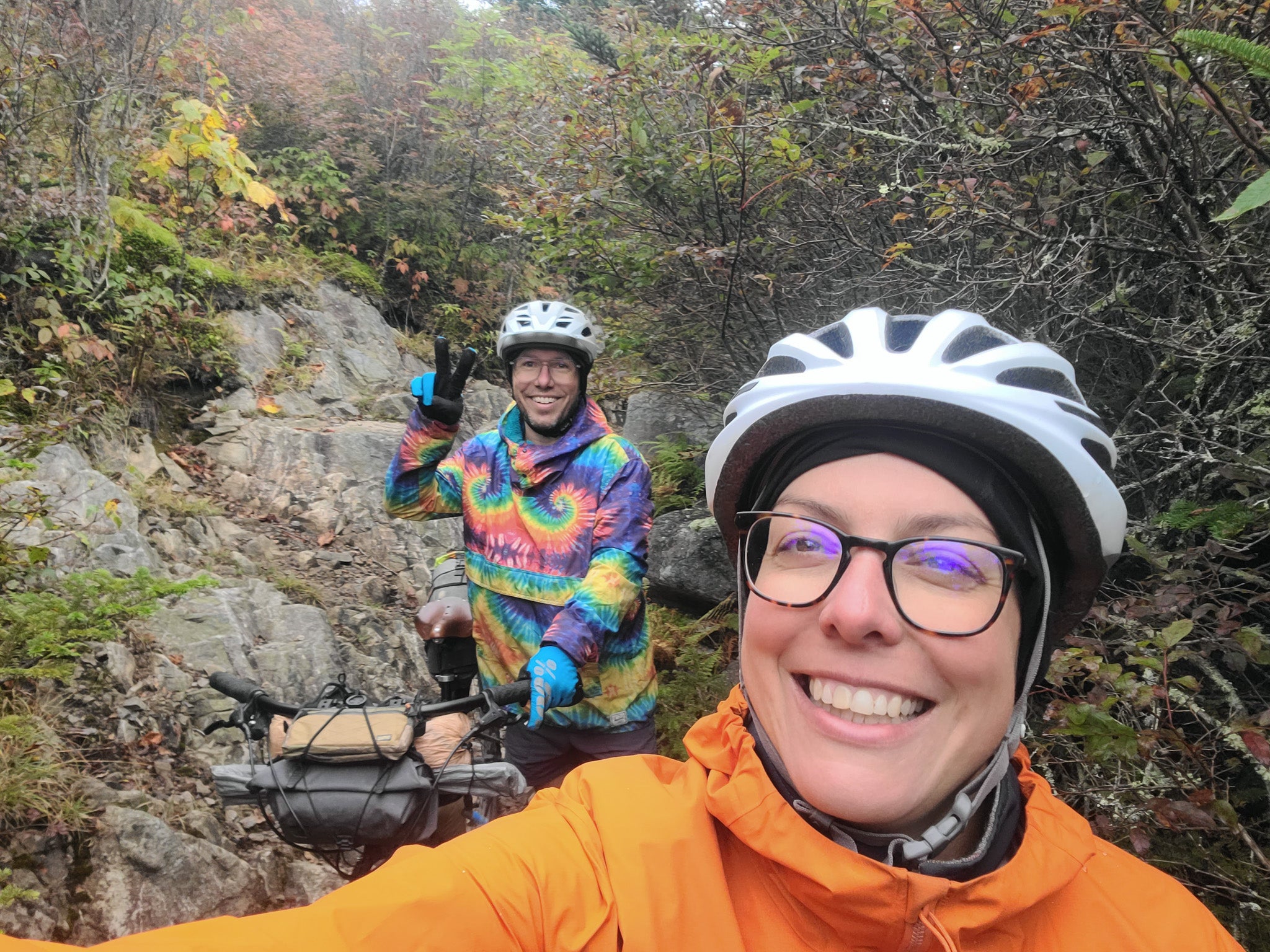
Do you have the tendency to let yourself complain, be negative or act frustrated when you're in a challenging environment with your partner, more so than when you're with strangers, family, or friends?
Perhaps we've gotten comfortable with our loved one, at times even taking them for granted and thinking that because they love us, we can act poorly around them and get away with it.
If we expand this out over time, we might develop patterns of behavior that aren't serving us or the ones we say we love.
If we want healthy relationships with ourselves and others, then it's up to us to take responsibility for our actions and work to improve our expedition behavior.
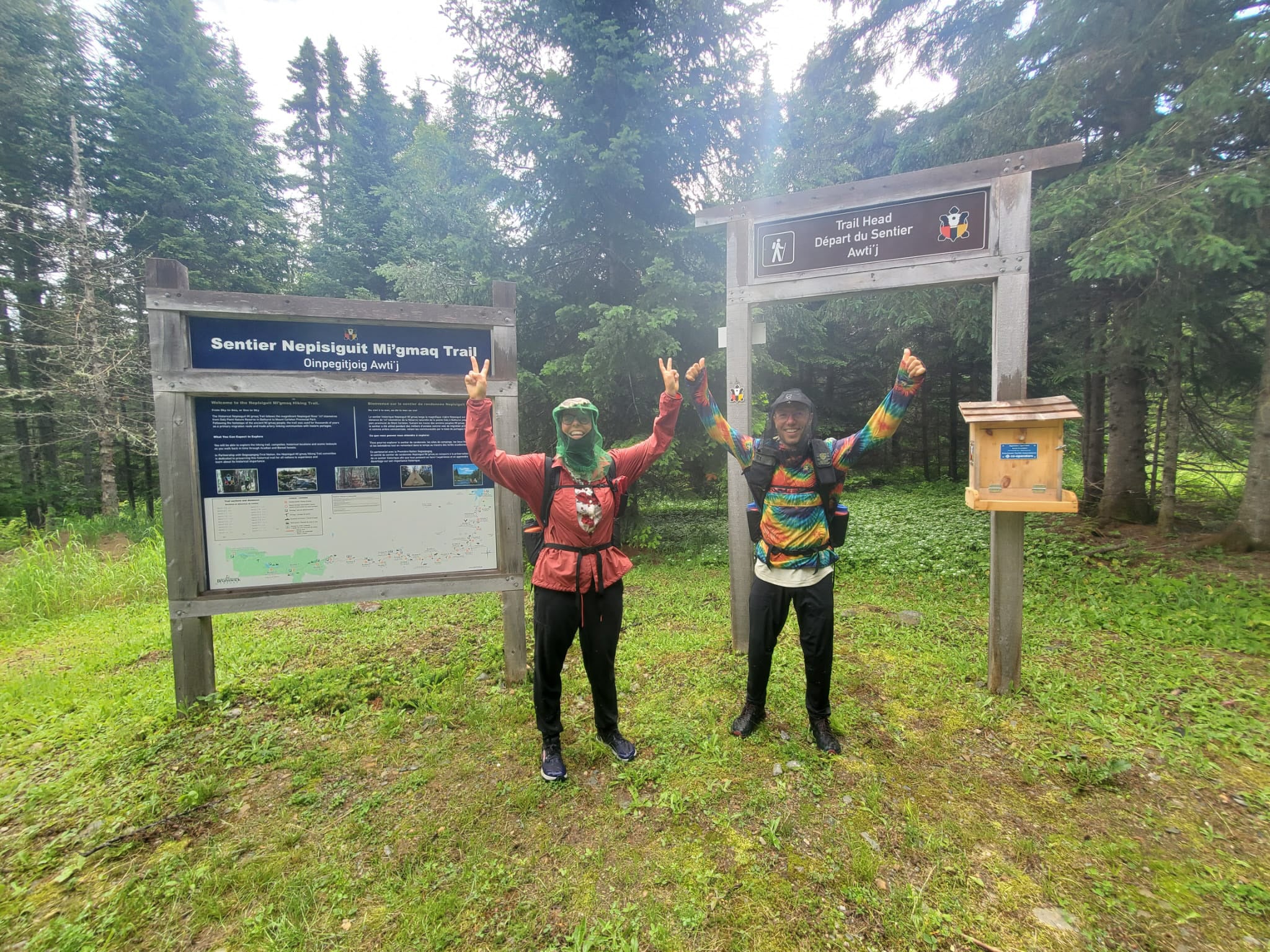
Sometimes when I find myself sulking on a hard climb or acting like a victim in some challenging situation, and taking it out on my lover, I remind myself: You are who you practice to be.
If I don't want to be a victim, or be treated like a victim, then I ought to stop living like one.
And if that doesn't work, I'll ask myself:
"How would I behave right now if Mat and I had just met?" or better yet, "If I was the hero in a book I was reading, how would I want me to act right now?"
Oftentimes, we just need to stop and breathe deeply — maybe even sit for a second and as my grandma used to say 'have a little talk with ourselves'.
Communication with ourselves can help us realign with our higher self and move us toward becoming the person we wish to be.
Gratitude
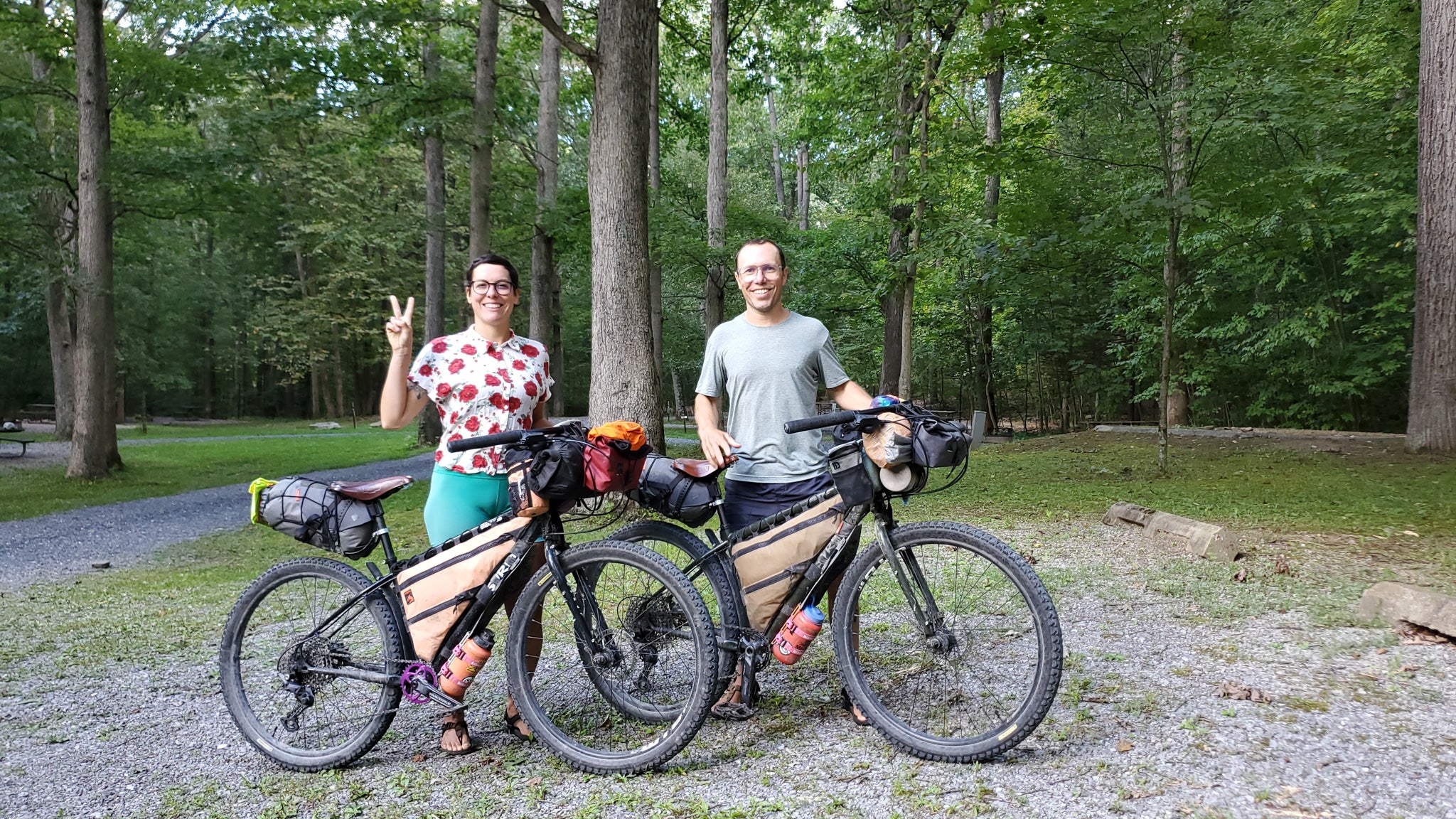
Last but never least, gratitude is always the best attitude.
Count yourself lucky that you have a fun-loving, adventurous, courageous, kick ass partner who enjoys spending their time going on the same outdoor expeditions that you do.
Let your partner know how much you appreciate sharing these amazing outings with them and tell them how much they mean to you. (There's that communication thing, again).
Then live in accordance with that gratitude by showing up and sharing yourself honestly and openly, and allowing them the space to do the same. Help support and fulfill each other's needs by acting with the knowledge that life is temporary. Work toward being the best you for yourself and everyone else you hold dear.

What other tips do you have for a happy, healthy and successful adventure-filled relationship? Leave a comment below.
Ali Becker is a freelance adventure writer and narrative storyteller who shares compelling conversations about personal transformations, overcoming limitations, wellness education and adventurous situations. You can follow her rambling adventures on social at @thisisalibecker.













